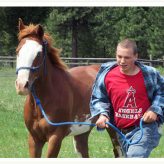
It’s important to keep these in mind when finding the right school or program for your child. Parents are often overwhelmed when their left with finding the right type of school or program that will best meet their troubled children’s needs. If they’re lacking in motivation, behaving out of control, or just failing in their grades, they need an option that will not only help their rehabilitation process, but also care for them as a human being. Luckily there are an abundance of services that offer your child a chance to succeed and get back on track. If you’re thinking that boarding schools are your only option, there are alternatives to this route such as a boot camp for teenagers that will correct their problematic behavior. Here are some things that you should consider when looking for the right program for your child. When looking for a school for your troubled youth, the first thing that you’re going to want to check is their accreditation status. Do not go ahead and choose a school that is not accredited as their credits will not be transferred upon completion. It’s easy to find as the schools that have passed their regional accreditation place this on their website. The difference between a private school and an alternative school for the troubled is that there are additional services such as counseling and “on-on-one’s” that are offered within their curriculum. This being said, tuition prices could average out to $40,000 for the year as well as lodging costs. Lastly, ensure that the school of your choice awards a diploma that is recognized by educational accrediting bodies. Wood Creek Academy is a therapeutic boarding school for boys offering wilderness therapy programs unlike a typical juvenile boot...
Read More





